Subtle Sexism, and other lessons we teach our kids
Children have some questions for us. Even if they aren't asking.
Hello ji,
I have a two-year-old and we play nursery rhymes for him sometimes.
Okay, that was a lie.
I have a two-year-old and he makes us play nursery rhymes ALL. THE. TIME. till our ears bleed and all our dreams become endless loops of “wheels on the bus go round and round, round and round, round and round…”

After party favourites like Wheels on the Bus play for approximately one bajillion times, our Toddler Boss sometimes allows us to play random playlists of nursery rhymes.
Because liquid inko jeene nahi dega, aur oxygen inko marne nahi dega.
On one of these randomized playlists, I once heard a nursery rhyme about shapes. Some lyrics from the song caught my ear. They were teaching kids about the shape round, and what better way to teach the lesson than:
Mummy ki roti gol gol gol,
Papa ka paisa gol gol gol…
(Mummy’s rotis are round in shape, Papa’s money is round in shape.)
Yep. There really exists a rhyme out there that teaches kids ‘round’ shape through classic examples like their mother’s rotis in the kitchen (because where else would a woman be?) and their father’s coins (because whoever heard of women earning?)
Not only does this rhyme exist in this Universe, but it has over 100 million views on YouTube.
People have actually shown this video to their children.
Millions of children.
Over and over again.
It freaks me out - this thought that once my kid steps out into the world of schooling and friends in the playground, he will be bombarded with such messages from all directions. Seemingly innocuous songs, books, pictures - all subtly teach our kids that men and women have distinct roles to play at home, at work, and in society.
I spoke to some fellow parents this week to figure out if they shared my fears and anxieties. And if they have found some ways to navigate the maze of sexist messaging our kids have to deal with out there.
Dosa, Amma Dosa
Aarthi told me about another rhyme for kids that bothers her.
“There's a rhyme on YouTube that shows the making of a dosa. The song goes: ‘Dosa amma dosa... 4 dosas for Appa, 3 dosas for Amma, 2 each for the two older kids, and 1 for the baby.’ The difference in quantity between the mother and father obviously stands out. What bugs me further is that when the song begins, it shows the dad sitting and reading the newspaper while the mum is making dosas in the kitchen for everyone.”
Aarthi and her husband have made an edit to the rhyme to tell their son.
“We corrected it and said 3 for Appa, 3 for Amma, 2 for the baby because the baby is small. And we never show him the video. Similarly, there is another rhyme about doing laundry. The rhyme talks about ‘the child helping the mother’. Teaching kids to help out in the house is a noble idea, but I wish the character they were helping was the father and not the mother.”
Aarthi has had to confront her son’s teacher at school for one such message she was giving him.
“I get that these rhymes were perhaps written in another era when these stereotypes were not questioned. But I wish we could at least sensitize our teachers to be more conscious of them.”
“For example, my son’s teacher would ask him every day, ‘What did Amma cook for you today?’ I ignored it a few times but when it kept recurring, I decided to casually mention to her that it is different in our house. My husband is more hands-on in the kitchen than I am, so this question might confuse my child. More importantly, I don't want him to grow up with a notion that only women cook and men don’t. I suggested that she could instead ask him an open-ended ‘What did you eat today?’ instead of assigning gender roles to his parents. Unfortunately, her response to stop asking him what he ate altogether.”
“Daddy’s making dinner”
Pia is similarly bothered by children’s books, stories, and rhymes that teach them harmful notions in an innocent-looking packaging.
“I think that Aarthi’s kid’s teacher stopped asking him what he ate because what he ate does not matter to her. That his mother is the kind of ‘good mother’ who cooks in the kitchen is what seems to matter more.”
“Even when our children are taught about the father in the kitchen, it is packaged as a joke about Dad’s inability to cook. There is this poem by Jeff Mondak, called ‘Daddy’s making dinner’ which is a classic example of the kind of messaging that really gets to me.”
Goldilocks
The trope of the father being given more dosas to eat than the mother is a commonly experienced pain point. Harsha shares her experiences.
“We all grew up listening to the story of Goldilocks. None of us questioned why Papa Bear had everything - his porridge, his chair, his bed - bigger and better than Mamma Bear’s.”
“My kid attends Montessori classes online. Following the Goldilocks format, when his class is taught sizes or shapes, bigger stuff is always attributed towards the father, and smaller for the mother.”
“Whenever his teachers refer to food, they inadvertently ask if his Amma made roti or rice today and how he liked it. Food and love are always attributed to the mother while going to work and earning money is attributed to the father. Even in Peppa Pig - which is otherwise quite a progressive cartoon for kids - Mummy Pig stays at home while Daddy Pig goes out to work.”
Daddy ka gol paisa will teach you about money, Mummy ki gol-gol roti better be healthy
Farah has made similar observations in what messages are directed by her son’s school at which parent.
“The teacher always suggests that the kids’ Moms should give them healthy food options for lunch - they never mention the Dads in this context.”
“All the homework or activity-related information is directed to Moms, but follow-up for fees is done with Dads.”
“While teaching the concept of money, they suggest that the kids should sit down with Dads to check out their coins. The difference is definitely noticeable.”
Girls can’t play football
Shruti has a three-year-old who has online classes every day, which she sits through with him.
“Yesterday's theme was the home - understanding the functions of each of the rooms, with a deep dive into the kitchen. Fun stuff. I really appreciated that they made all the kids do the kitchen activity (where they had to each pretend-cook something). What was even better was that many of the boys (including mine) seemed to have kitchen sets and were happily fake mixing and slicing.”
“What was not so great was that after the activity, when the teacher was telling them a story about a particular family's home, she described the basement as where ‘Mamma does the laundry, and Papa has a work-station’. She went on to speak of the car park as ‘Where Papa parks his car’, the kitchen as ‘Where Mamma cooks, and sometimes Papa also’.”
Shruti hung around after class and complimented the teachers on having made all the kids do the kitchen activity, and then shared her concerns.
“All the gendered stuff, and how I wished we would be more neutral in explaining who did what around the house as it seeds notions of gendered roles so early (and insidiously) in kids as young as 3-years of age. (I chose to drop the battle of not using American/suburban homes as the benchmark for how all homes/lifestyles look. Sitting in Mumbai with not even separate dining area, it seems strange to talk about a basement for laundry, but I decided to pick my battles.)”
“The teacher was surprised, I could see. No one had given her this feedback before. She said she would convey it to the right people.”
But Shruti remains concerned.
“This is a great school, founded by a strong woman entrepreneur who speaks about gender equality a lot. And yet, here we are. Not for the first time too. I have spoken to them earlier about (not) using words like Policeman, Fireman, etc.”
Shruti took up this conversation with fellow mothers at her workplace and was legitimately scared by the stories she heard.
“There were stories which will always stay with me. A 6-year-old boy said that his male friends did not want to include young girls in their sports time at school because they don’t think that girls can play football. An 8-year-old boy advised his mother against buying a Science Set for a female classmate of his, instead asking her to buy jewellery or a beading set because he had the notion that all girls preferred jewelry to science. And mothers of young girls of the same age said their daughters were being extremely curious and interested in getting married and having kids because they somehow picked up the notion that they need to focus on these things as girls.”
These stories stuck with her, and left Shruti quite worried as a mother.
“I see my sweet and innocent 3-year-old and I wonder what will happen to him when he goes to school and is subjected to this gender indoctrination. Of course my husband and I will do our best at home (although we are not perfect). But I definitely see a career for myself as an over-ardent parent who lands up at his school often to ‘coach’ the teachers on gender conditioning.”

Extra-curricular activities are no different
Pranjal’s niece, who will turn nine this year, has been learning classical dance since she was four.
“She was always a plump kid. Needless to say, she has been fat-shamed in school quite a bit. Concerned by her weight, and wanting to come across as cultured, my sister and brother-in-law enrolled her in classical dance at school.”
The requirements of the activity disturb Pranjal.
“It is a danceform designed for ‘pleasing the Gods’. It needs a lot of makeup and some extravagant hairdo. The blouses need to match the saris. The kohl should be perfect. The foundation should match her skin tone. The lipstick and nail paint should be right. The dance moves have to look enticing. I see this kid worrying about all these things and she is not even 10 yet.”
Ultimately, Pranjal respects that it is her parents’ decision, but he cannot help but compare his niece’s childhood experiences with his son’s who is the same age.
“My son and all his friends (mostly boys) just run and hide, and hide and run. They all wear lowers that are torn near the knees, because they fall every day and roll on the grass wearing these clothes. One day I was watching him play chess with a friend of his. They were throwing the magnetic pieces like darts on the chessboard. They were inventing their own nonsense version of chess and laughing their heads off. I see this childlike joy missing in my niece.”
“There's no ideal parenting. I am not even boasting that I am a great parent. Nor am I implying that parents who send their daughters to learn classical dance are not good parents. But I find these boys free. Art should liberate. And I find my niece somehow entangled in the activity her teachers and parents chose for her. I am sure no God-pleasing dance forms would have been forced on her had she been a plump boy.”
How many Mothers does it take to change a light bulb?
Zero, because Papa changes the light bulb.
Ayesha is a mother of two sons and recalls the challenges she has had to face with their education over the years.
“There is definitely a lot of sexist messaging, which subtly goes on in schools. When my elder son was in second grade, he had this whole exercise where they were given jobs around the house and asked ‘Who does this?’ So it had questions like, Who pays the bills? Who does the cooking? Who gets the groceries? Who changes the bulbs?”
“My kids have only ever seen me changing bulbs around our house. So they obviously said, ‘Mamma changes the bulbs.’ And the teacher immediately ‘corrected’ them: ‘No no, Papa changes the bulbs!’ Another girl in his class, in the answer to ‘Who drives the car?’ said ‘Mamma drives the car.’ Again, the teacher ‘corrected’ her with ‘No, no, Papa drives the car’. My son thought this was quite ridiculous and I agreed.”
“At the next PTM, I took it up with the teacher. I said, ‘I don't think it is right, because it is giving a terrible lesson to the kids when you could use this as an opportunity to broaden their minds.’ Of course, she totally ignored what I said.”
A few years later, Ayesha’s younger son was in the same class with the same teacher. He walked into this exercise prepared with a response.
“He went and gave a long lecture in the class. He said, ‘Well, my mother does all these jobs. There is nothing intrinsically male or female about any of these jobs. This is just what any parent does.’
Later, the teacher actually sent me a complaint, ‘Your son talks back a lot’.
And I responded, ‘Well, my son talks sense and you should listen to him.’”
Ayesha also has a bone to pick with all the girls-versus-boys activities at school.
“Many schools make everything about girls-versus-boys. Elocution contest, quiz contest, relay race - you name it. I don’t understand why we have to reinforce gender divisions among the kids at such an early age. I see all these kids anxiously doing these activities, as if their gender defines them and it is just so wrong.”
The school Ayesha’s kids went to even tried to divide the parents by gender without saying so. Once again, Ayesha’s sons were the ones to call this out.
“There was this Sports Day when a Parents’ 5km race was organized. Except when they said ‘parents’, they really meant ‘fathers’. My son insisted that his mother would run the race because I was into running at the time.
His PT teacher said, ‘No, it is only for fathers.’ My son said, ‘Well, I'm sure my mother can outrun any of the fathers’. When the teacher refused to relent, my son said, ‘In that case, I am not even inviting my father. And I am not taking part in the Sports Day either because you are being rather silly here’.
Ultimately, the PT teacher agreed but said, ‘If your mother collapses, I am not responsible.’ My son said, ‘I'm sure she can do it faster than anyone else.’ Well, his mother did not do it faster than everyone else but she did come in Third place and it was all rather fun. I really love my son for standing up and saying ‘My mother will do it. Especially if you think she should not or cannot’.”
The collapse of discipline at home: CBSE
Below is a passage that was included in this year’s Class 10 CBSE board examination as a reading comprehension exercise:
If you didn’t read the whole thing, it is essentially saying that a wife’s subordination to the husband – “the master of the house” - taught the “children and servants” how to be obedient in the glory days of the last century. Unfortunately, now “the emancipation of the wife (has) destroyed parents’ authority over the children” because the mother no longer “exemplified the obedience upon which she still tried to insist.”
After the examination was over, there was furore - including in the Parliament - over how such a passage cleared multiple stages of the selection process to make it into this examination taken by millions of students of the country.
Finally, the CBSE was forced to apologize and revoke the question from evaluation.
Pritika has some questions for us
Pritika is probably the youngest (and my favourite) reader of Womaning in India. Her father told me some time back that she reads every edition and makes sure her parents have a family discussion about the theme I write about that week and how it impacts their lives.
Honestly, I love all my readers, but even if everyone else stopped reading, I would just keep writing Womaning for Pritika.
Her father, Sanjay, tells me, “When she was in 5th standard, Pritika showed me some illustrations in her Maths textbook and had some questions about them.”
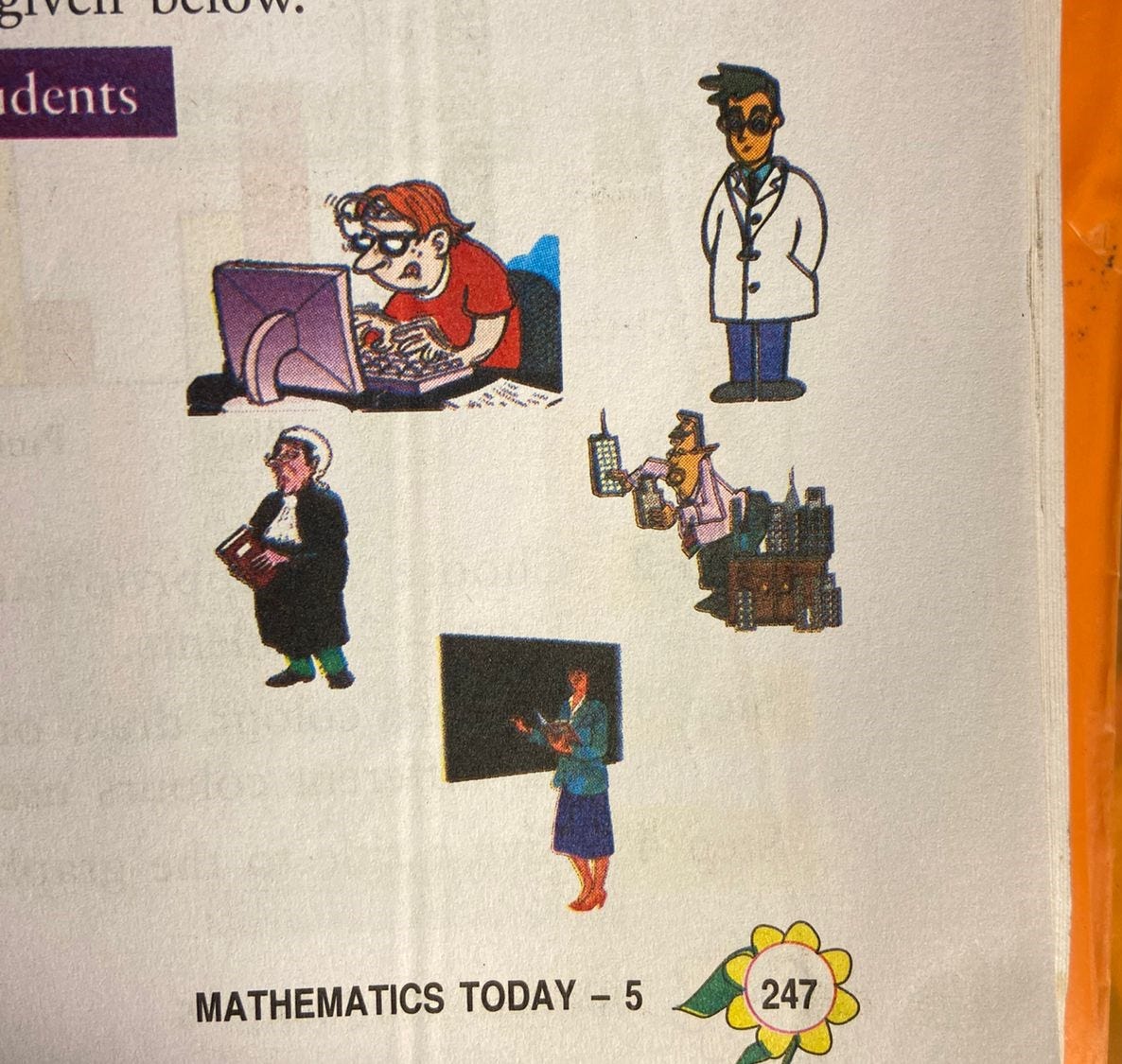
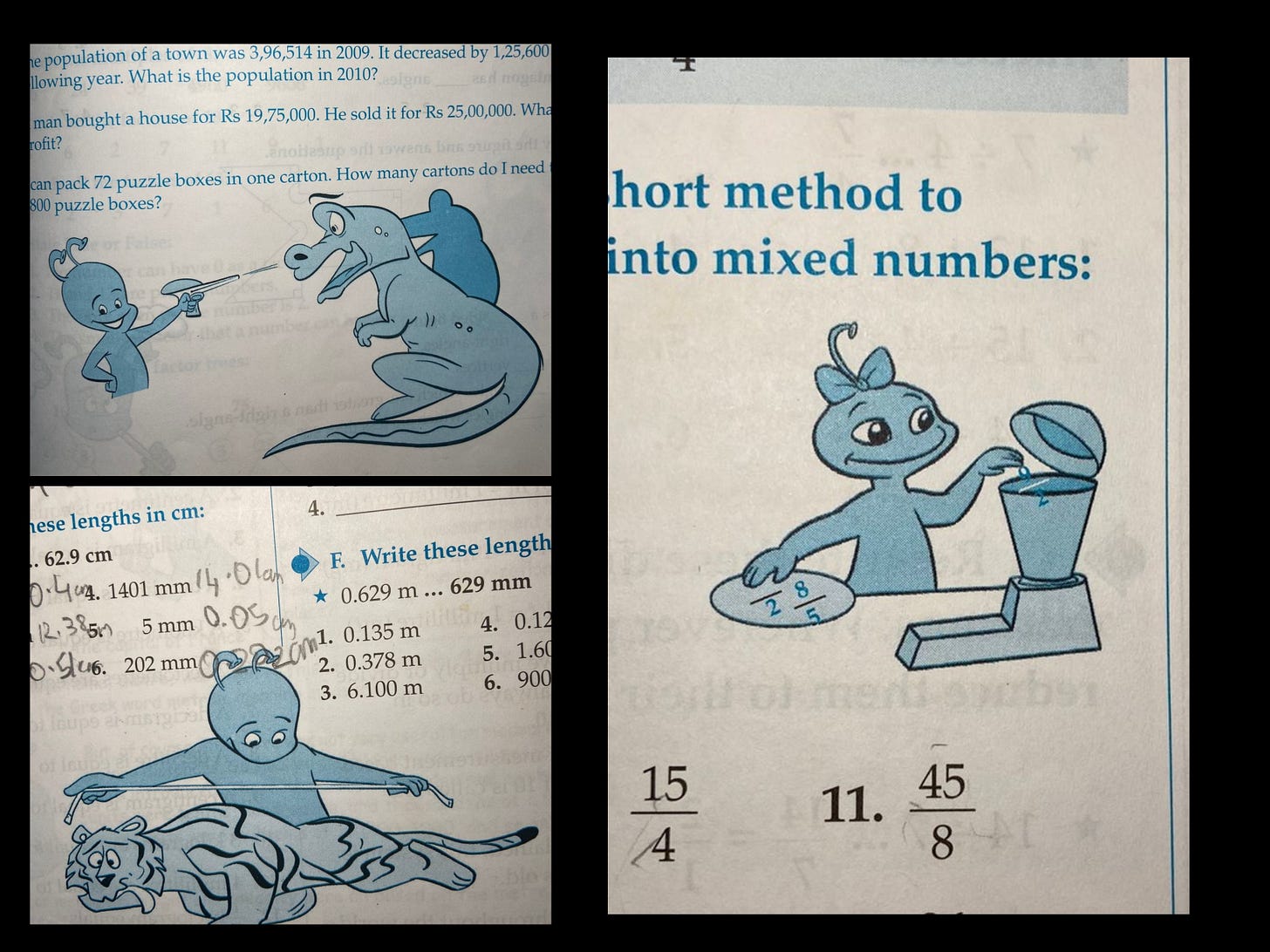
Sanjay says, “This nonsense is everywhere. But the thing is - we never noticed any of it until she pointed it out to us. By ‘we’ I mean her teacher, her classmates, her mom, me - all of us.”
Pritika sent me this message when I asked Sanjay her thoughts on this now that she is a teenager:
“Since I was a kid, I’ve noticed that people, especially families, bring a girl down instead of appreciating and encouraging them. A lot of Indian families continue to perpetuate this casual sexism, and shape our worldview. I think, as a teenager and a girl, I wish adults could look through our lens, and see the world from our point of view.”
“My family seems fairly liberal; they encourage us to study, help us find a career and guide me with school. However, I have been noticing something quite odd about my extended family. I love books, and read a lot. But whenever I am spotted reading a book, my uncles say “Ladki kitni padhai karti hai! Madam Ji aap itni jyada mat karo” (This girl studies too much. To Pritika - Madam, please don’t study so much!)
“But when my male cousins read even comics and cartoons, they are showered with praises and pride. This goes in exam marks also. Two of my cousins are around the same age; let’s call them S bhaiya and J didi. J got more than 90% on her boards, and S barely passed. Take a guess as to whose got more pats on the back and parties?”
“In second grade, we had to do some kind of dance in which a girl and boy would face each other, do a move, and twirl. The boy I was dancing with looked at me and shouted, “Nice mustache!” Everyone - including the teacher - laughed and kept laughing. It was the first time I remember ever feeling ashamed of my body.”
“I am also into swimming. I swim with boys and girls, and the workouts are intense. To motivate the boys during the workouts, the Coach yells, ‘Do you want to get beaten by a girl?’ Which just riles me up, and I get mad. I still haven't confronted my Coach about this, and I feel terrible about not doing so.”
Science has shown - time and again - that children learn life lessons from these subtle messages we send them.
When children see all doctors shown as male in textbooks, and all nurses shown as female, they learn a lesson from it - whether you noticed it while flipping the pages of their textbook, or not.
When they see Mamma cooking in the kitchen and Daddy reading a newspaper intheir favourite nursery rhyme, they learn a lesson from it - whether or not it was the lesson you wanted to teach when you played it.
When their teacher asks them ‘What did Amma make for you today?’ they learn more about gender roles from that question than they learn about food groups.
Our kids have some questions for us - even if they are not voicing all of them.
Do we have an answer?
Mahima
❤️ Love Womaning? Show it by becoming a paid subscriber or getting yourself some choice Womaning merch.
🔥 If you are an aspiring writer - or even someone who just wants to make their emails shine - check out my storytelling course, which includes writing workshops and one-on-one mentoring to help you write better, write consistently, and launch your own newsletter.






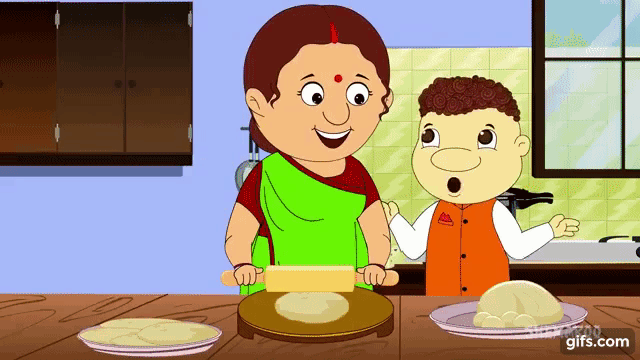

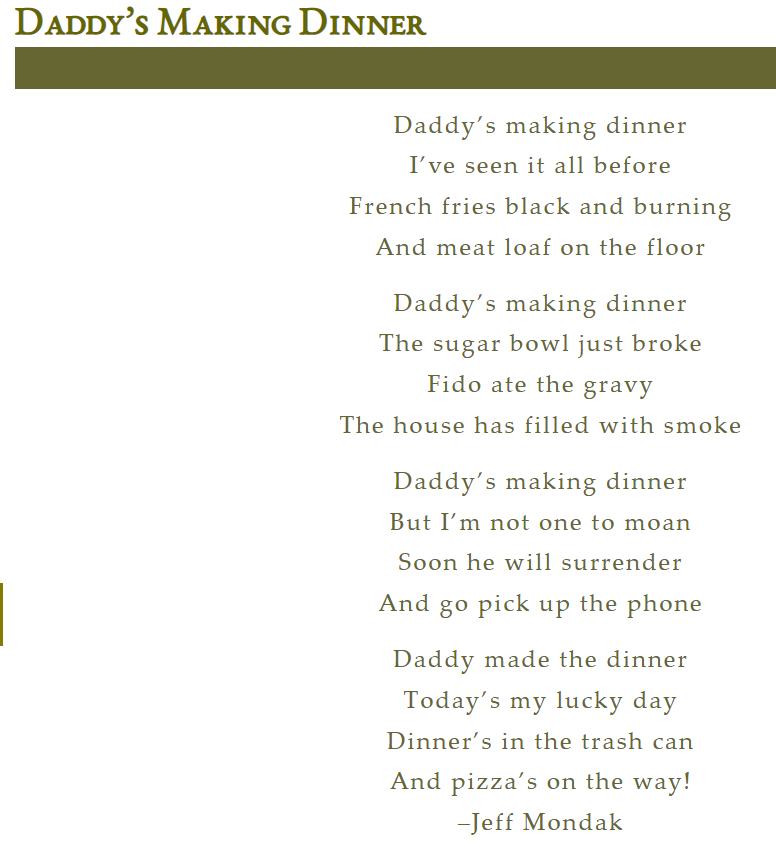
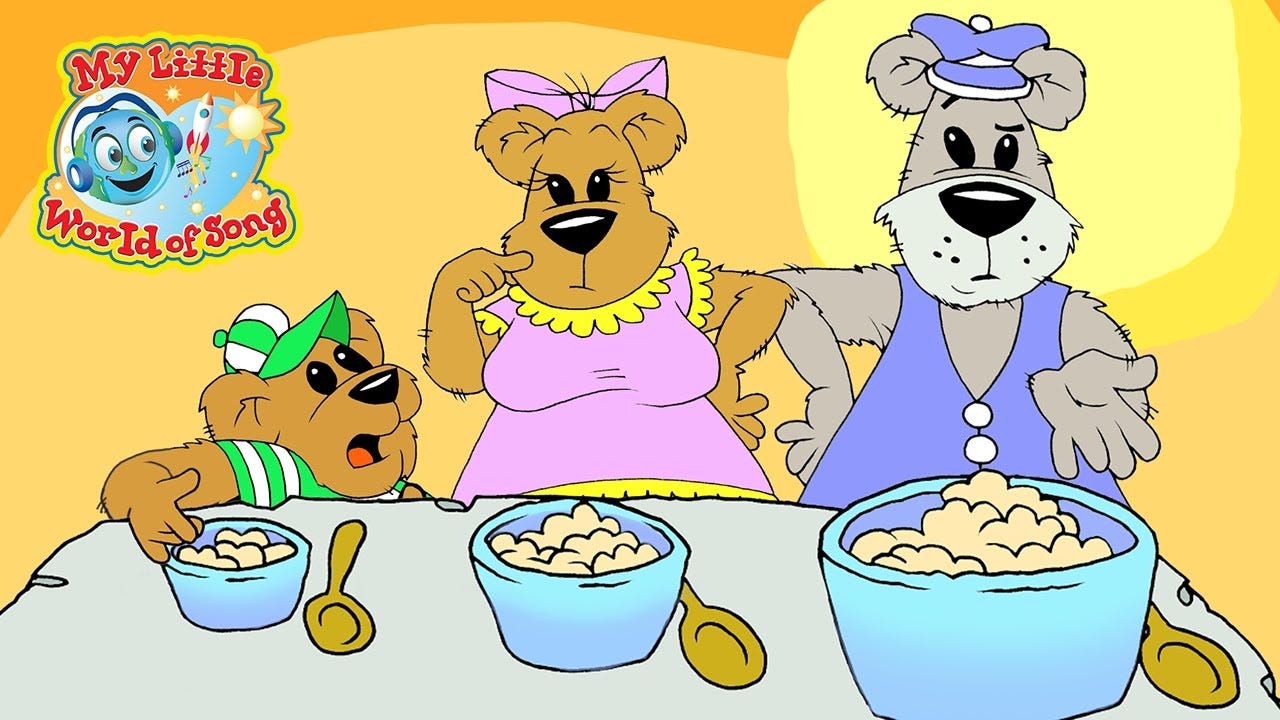
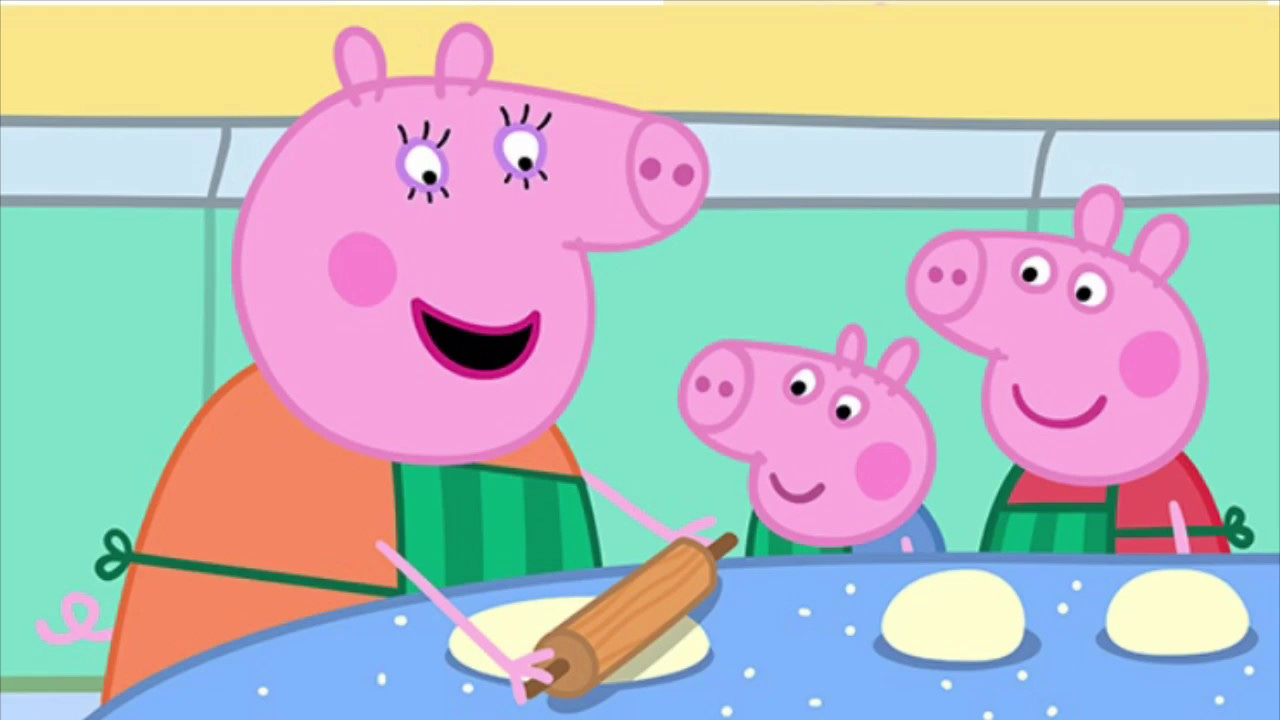

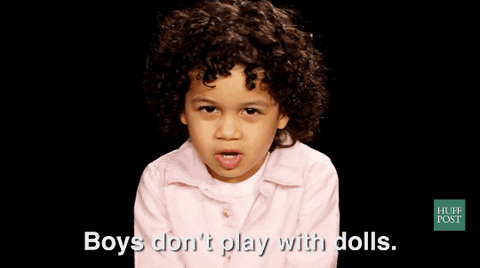

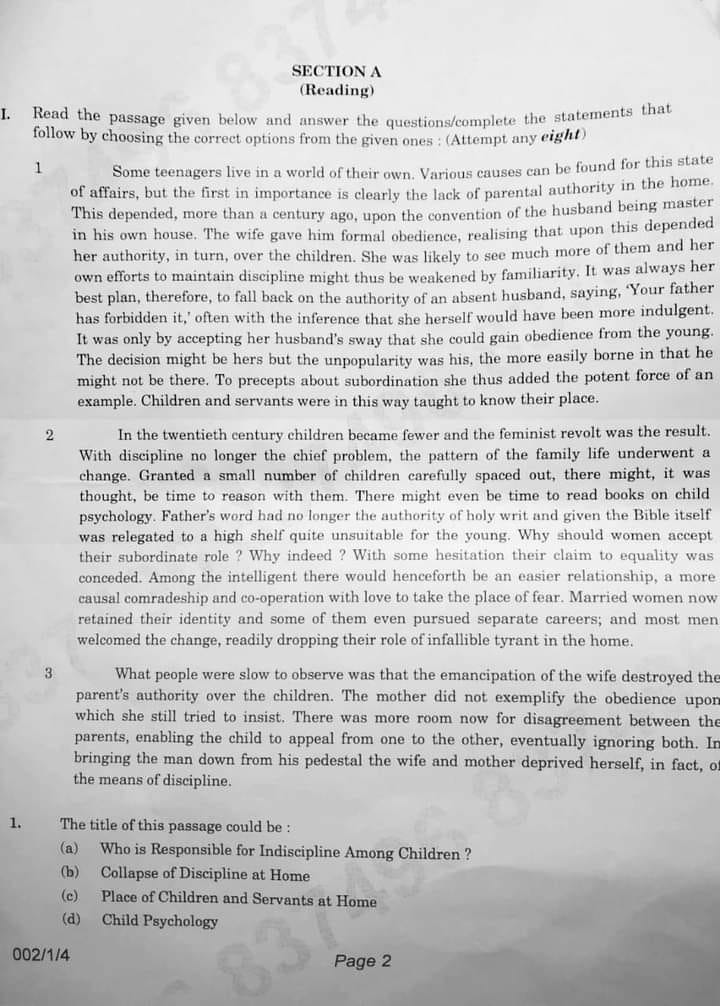
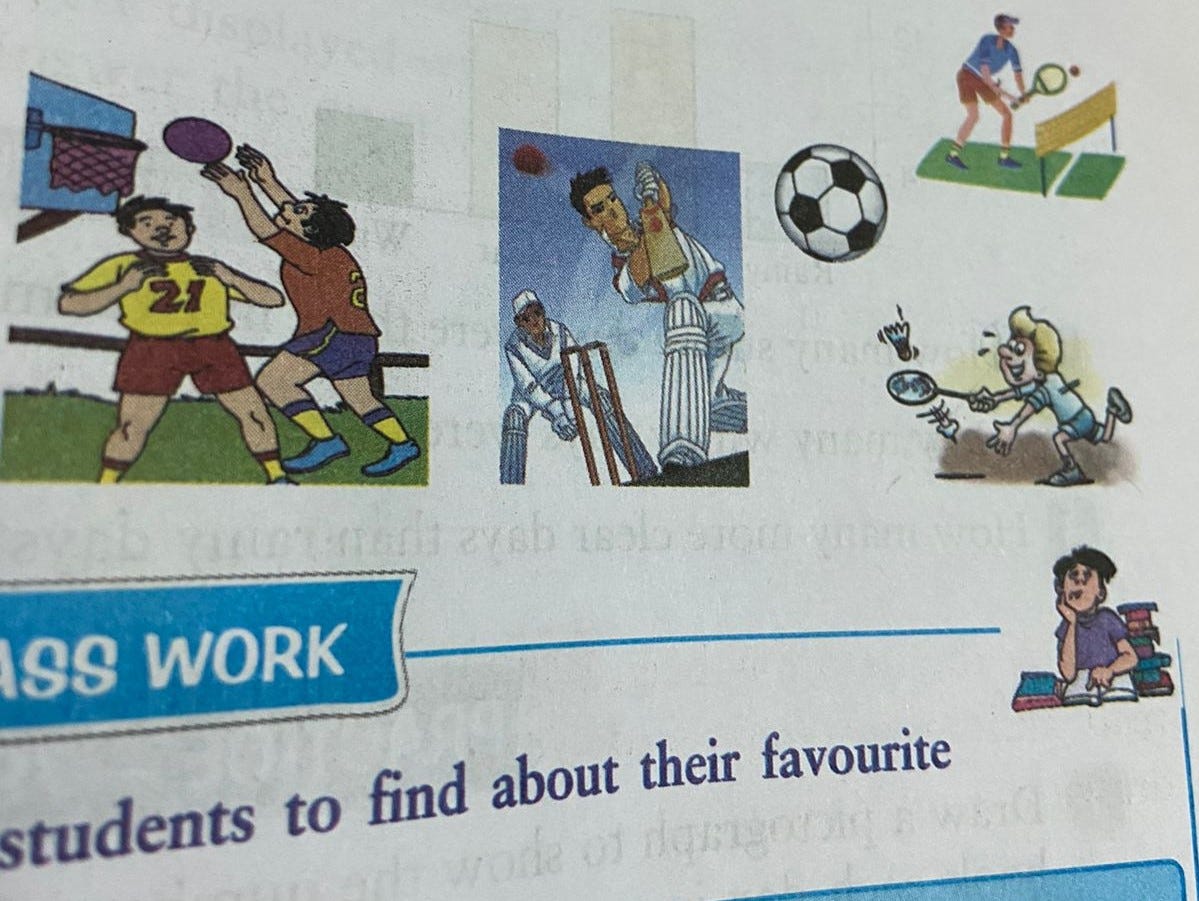

This was so insightful, Mahima. I have not had kids around me for a very long time but I remember the toxicity of school during adolescence- the policing of skirt lengths, bra straps, hair braids, kajal and what not. I remember not liking the attacks but I don't remember identifying them as gendered- it felt so normal! It is encouraging to hear how these dynamics are shifting with children themselves questioning so much. As always, thanks for writing this and putting in the effort of gathering all these perspectives.
Great insights and the right way to think - gender-neutral - we all need to become. Thanks for this blog, absolutely loved it.